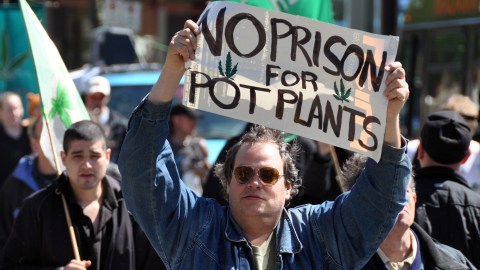Canada offers pardons to citizens with pot possession charges

- Canada legalized recreational marijuana on Wednesday, October 17.
- The new laws allow citizens to carry up to 30 grams and grow up to four plants.
- It’s currently unclear how the nation will conduct the pardoning process, though one official suggested it could be as simple as submitting a form.
On Wednesday October 17, Canada became the world’s second and largest nation to legalize marijuana.
As part of the transition, the Canadian government plans to allow citizens to request pardons for past pot possession offenses that didn’t exceed 30 grams, the new legal possession limit.
Canada’s CTV reports that the pardons won’t be granted immediately, but government officials are looking at ways to streamline the process.
“We’re going to be working on [the pardoning process] as I’ve said, as soon as the day of legalization comes into force,” Prime Minister Justin Trudeau said Tuesday.
A Canadian member of parliament estimated the number of citizens with minor marijuana possession charges to be in the hundreds of thousands.
Pot arrest statistics in Canada
Pot arrests in Canada have become increasingly rare in recent years as the nation has moved toward legalization.
According to government data, some 13,800 Canadians were charged with marijuana possession in 2017, while about 28,000 citizens received possession charges in 2011. Charges for marijuana trafficking, production and importation have also been decreasing since 2011.
What explains the drop?
Mike Serr, the deputy chief of the Abbotsford Police Department in B.C. and chair of the drug advisory committee of the Canadian Association of Chiefs of Police, gave the CBC a two-fold answer:
“Police forces have been focused on the opioid crisis and all the public-health issues surrounding it,” Serr said. “And as we get closer to legalization, more police officers are using their discretion when dealing with minor infractions — especially [those] not involved with organized crime.”





